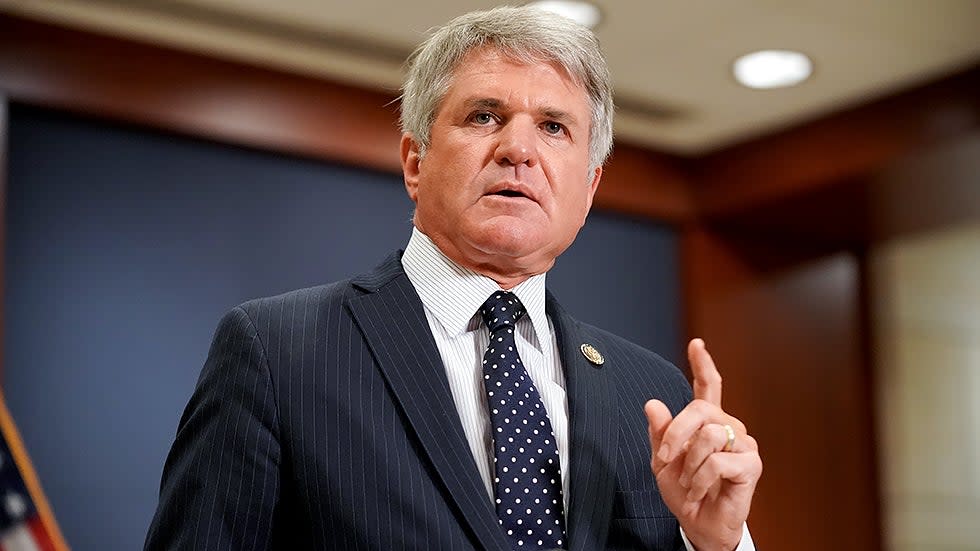McCaul: Putin 'smells weakness' in Biden's 'concessions' on Russia

- Oops!Something went wrong.Please try again later.
- Oops!Something went wrong.Please try again later.
- Oops!Something went wrong.Please try again later.
- Oops!Something went wrong.Please try again later.
Texas Rep. Michael McCaul, the top Republican on the House Foreign Affairs Committee, on Sunday blasted the Biden administration's handling of the ongoing Ukraine-Russia conflict, saying Russian President Vladimir Putin "smells weakness" in President Biden's approach.
While appearing on CBS's "Face the Nation," McCaul responded to Secretary of State Antony Blinken, who earlier on the show said that the U.S. was refraining from issuing sanctions against Russia because it would mean losing a means of deterrence.
"I completely disagree. I think this has been a passive deterrence, right?" McCaul said.
"I don't see Putin changing his course of action. It's getting very aggressive. The noose is tightening around Ukraine. President [Volodymyr] Zelensky, as you mentioned, said he wants the sanctions now. We can always remove the sanctions if it deters Putin's bad behavior, but if you reward that and there are no consequences, it's going to continue," said the congressman.
During the interview, McCaul also lambasted what he referred to as Biden's numerous "concessions" when it came to Russia.
"I think this president has made so many concessions with nothing in return. That's why Putin smells weakness," he said.
The Texas representative pointed to the Nord Stream 2 pipeline specifically. Last year, the Biden administration waived sanctions over the pipeline, in an apparent effort to avoid straining relations with Germany.
"It's, you know, Putin's pipeline into Europe. Congress passed bipartisan mandatory sanctions to stop that from happening. We have a presidential waiver, that's very normal. We never dreamed that the President of the United States would waive that in the national interest of the United States," said McCaul.

